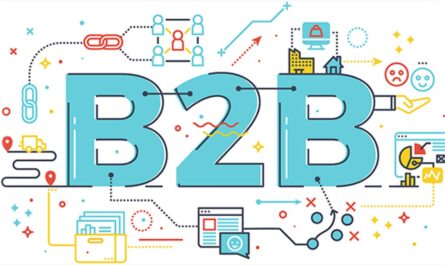Blockchain infrastructure offers numerous benefits to businesses of all sizes. By utilizing blockchain, companies can significantly reduce costs, improve security and reliability, and increase transparency in their operations. Blockchain also provides a secure ledger that is resistant to tampering, making it an ideal platform for business transactions.
In addition to cost savings, businesses that use blockchain-based solutions reap the rewards of enhanced data privacy and security. Transactions are recorded on a distributed ledger that is immutable and secure. This allows companies to keep track of their finances in a more efficient manner while also ensuring that transactions remain confidential. Furthermore, transactions are transparent and auditable, giving businesses even greater insight into the financial health of their operations.
Moreover, this technology makes it easier for companies to comply with existing regulations quickly and accurately without the need for costly third-party verification solutions or manual record keeping. By providing an open source platform for tracking transactions, businesses can easily identify suspicious activities or fraudulent payments before they occur. Additionally, businesses can leverage smart contracts to automate processes such as payments or order fulfillment with improved accuracy and speed compared with traditional methods.
Finally, the decentralization of blockchain networks allows them to offer higher availability than other centralized systems — meaning network downtime is reduced significantly. By providing improved scalability and redundancy options, companies can ensure that their systems remain up and running at all times without significant investments in hardware or software resources. Ultimately, leveraging the power of blockchain technology helps businesses reduce operational costs while boosting efficiency and improving customer satisfaction rates in the long run.
Unpacking the Challenges of Implementing Blockchain Infrastructure

Implementing blockchain infrastructure can be a daunting task for many organizations, given the complexity and uncertainty surrounding it. While there are many benefits to leveraging a distributed ledger technology such as blockchain, it also presents several challenges. As technology advances, it is important to stay informed of the various issues that may arise in an effort to effectively navigate them.
Firstly, blockchain infrastructure requires significant capital investments, as hardware and software must be purchased prior to setup and deployment. Additionally, the lack of interoperability among different platforms is another challenge faced when integrating blockchain into existing systems. Companies must also take into consideration their network’s scalability; should their customer base grow too quickly, their infrastructure may become overwhelmed from overuse.
Furthermore, security is always a concern as companies must ensure that all data exchange is encrypted and data privacy is maintained in order to protect user information. Finally, regulatory uncertainty can add an extra layer of complication; when laws haven’t yet been established for blockchains or crypto-currencies, businesses don’t have clarity on how transactions will be treated under tax laws or other regulations.
Overall, when considering implementation of blockchain infrastructure in any organization or business setting there are many variables one must contemplate before forging ahead with any type of project. It is essential to weigh up the potential risks versus rewards in order to identify which system best meets a company’s needs while ensuring compliance with local regulations. With careful research and planning ahead of time these challenges can be unpacked and addressed accordingly so that successful implementation can occur without risk or disruption.
Exploring the Opportunities Created by Investing in Blockchain Infrastructure

As the digital economy continues to evolve, one of the most exciting opportunities available is investing in blockchain infrastructure. By leveraging decentralized networks and innovative technologies, businesses have a chance to capitalize on significant gains. Blockchain infrastructure can provide enhanced security and scalability, increased efficiency and cost savings, all while improving data integrity, transparency and accountability.
Businesses can benefit not only from cost savings associated with transactions on blockchains but also from improved trust among customers and partners when dealing with sensitive information through a secure platform. Furthermore, blockchain infrastructure allows for faster settlement of transactions as well as increased speed and reliability while mitigating risk due to its distributed ledger system. This technology has been used in many industries from banking to healthcare as it provides greater security compared to traditional systems.
Furthermore, investing in blockchain infrastructure also opens up possibilities for businesses to explore new revenue streams that are not possible with other methods of data storage. For example, companies could create unique digital assets that could be sold or stored securely on blockchain-based platforms with full traceability for the parties involved. Additionally, this type of investment could open up the possibility of tokenization which would expand the reach of traditional markets into untapped global markets.
Alternatives to Building a Full-Scale Blockchain Infrastructure

Although building an entire blockchain infrastructure can offer many advantages to businesses, there are alternatives available that may provide similar benefits while avoiding some of the drawbacks. One option is to use a distributed ledger technology (DLT) such as Hyperledger Fabric or Corda which allows companies to create their own private network without having to independently deploy and maintain a full-scale blockchain platform. With DLT solutions, organizations can keep their data secure and transparent while only sharing certain pieces of information with approved parties.
Another alternative to a full-scale blockchain infrastructure is to utilize cloud services from providers such as Amazon Web Services, Microsoft Azure or Google Cloud Platform. By outsourcing the necessary computing power and storage requirements for the blockchain, companies can avoid the costs and complexities associated with deploying an entire distributed ledger solution themselves. Furthermore, by using these cloud service providers businesses can benefit from increased scalability, flexibility and reliability compared to managing resources in-house.
Finally, many companies are also now investing in private blockchains as opposed to public ones due to the added control they have over who has access to their data. With private networks it’s possible to determine what information is shared and with whom whilst maintaining a secure and reliable system that still provides all of the benefits associated with using distributed ledger technologies.
Overall, investing in blockchain infrastructure presents a great opportunity for businesses looking to gain an edge over their competitors in terms of cost savings, security and efficiency while also unlocking new streams of revenue through tokenization and asset ownership management capabilities. Businesses would be wise to consider this investment strategy seriously as it can help them stay ahead in an increasingly competitive digital landscape.






